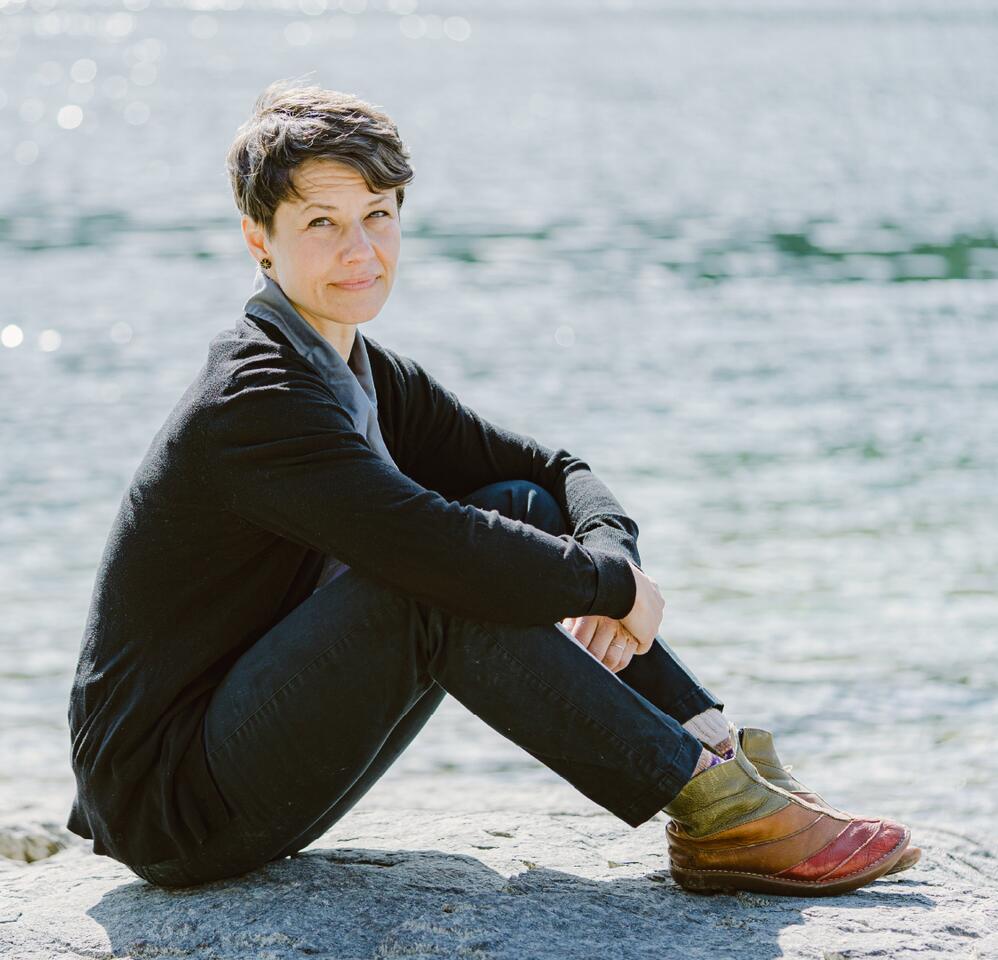
Changemakers
Mother tongues
Linguist Sonja Thoma is supporting the revitalization of Indigenous languages.
Photo by Bobbi Barbarich Photography
When Sonja Thoma moved from her native Bavaria to Seattle, she noticed that her new immersion in English meant a slight shift in worldview. Sometimes English had no words for the precise emotion she was feeling, while German did, or vice versa. Her experience as an immigrant left her fascinated by the many ways language subtly shapes consciousness. As a linguist, it’s something she considers daily in a very different context: her work supporting Indigenous language revitalization.
“Especially as a first-generation immigrant, I have a lot of humility as a settler who wasn’t necessarily invited to come here,” Thoma says. In the aftermath of Canada’s systematic attempts to erase Indigenous languages, including punishing children in Indian Residential Schools for speaking their mother tongues, language revitalization is a fundamental way Indigenous communities are honouring and advocating for their cultures today.
During her linguistics training at UBC, Thoma learned from several Indigenous elders, who shared with her the centrality of language in “the way we see the world, the way we live our culture,” she says. From the connections she made at UBC, communities began to invite Thoma to apply her training in support of their language revitalization efforts. “This work found me,” she says. Since 2017, Thoma has supported the Stó:lō nation’s Stó:lō Shxwelí language program through her company Linguistics in the Wild. She has also worked with the First Nations Education Steering Committee, coaching language teachers all over British Columbia.
Not a fluent speaker of First Nations languages herself, Thoma’s expertise lies in the frameworks of language learning, teaching, and documentation. Depending on the unique goals of her clients, she supports a wide range of areas where she says outside help is welcome. For instance, she might offer teachers strategies to use in the classroom, or assist with organizing curricula so that learning tricky grammar doesn’t feel too overwhelming. Often, Thoma translates academic jargon into accessible terms to create user-friendly resources. In communities where settler linguists or anthropologists once documented the local language in grammars or dictionaries – texts designed for other settler academics – Thoma’s expertise supports efforts to reclaim these documents for the community’s use.
Whatever form her work takes, Thoma emphasizes that the process is client-led, with her role being primarily to listen and to support communities “asserting their undeniable right to language and culture.” Thoma feels grateful that her expertise and extensive training can serve those advocating to speak and celebrate their mother tongue. “It’s great to be able to use my privilege to support that.”































